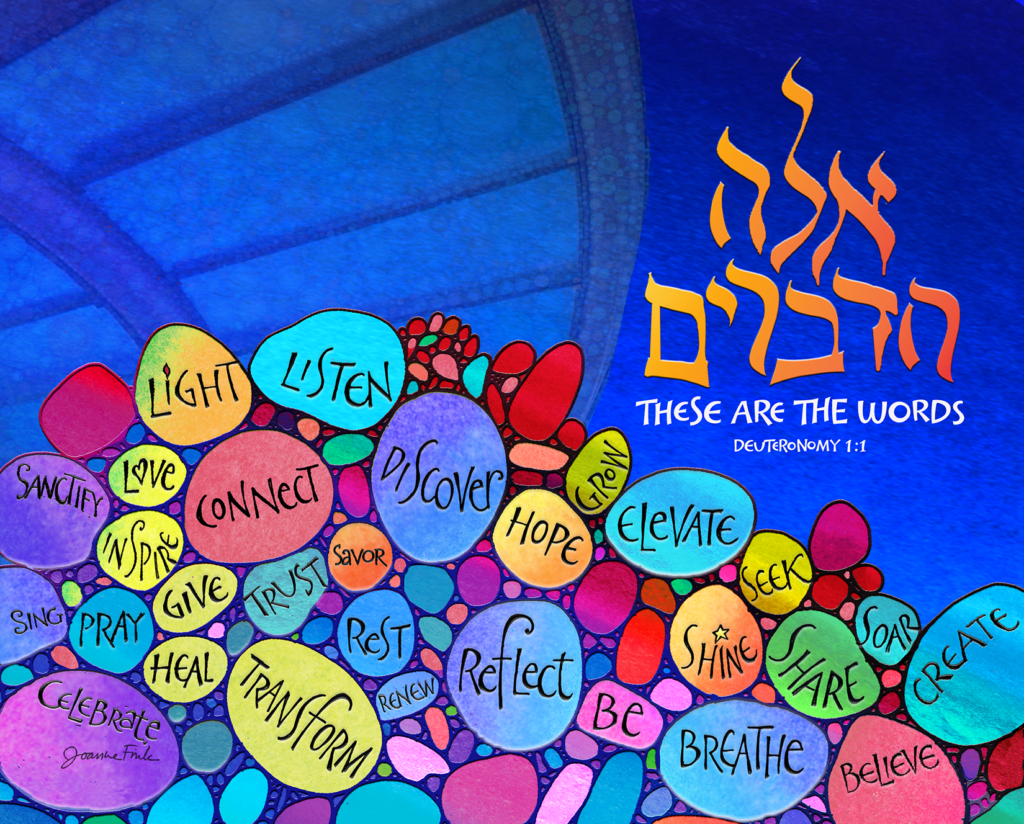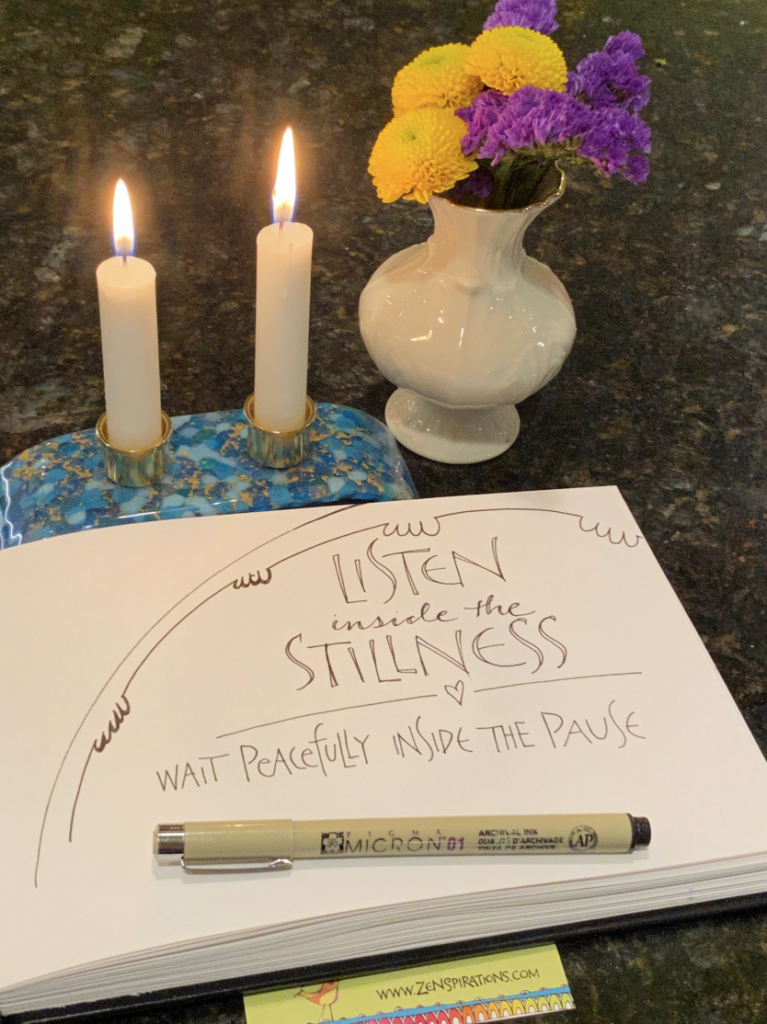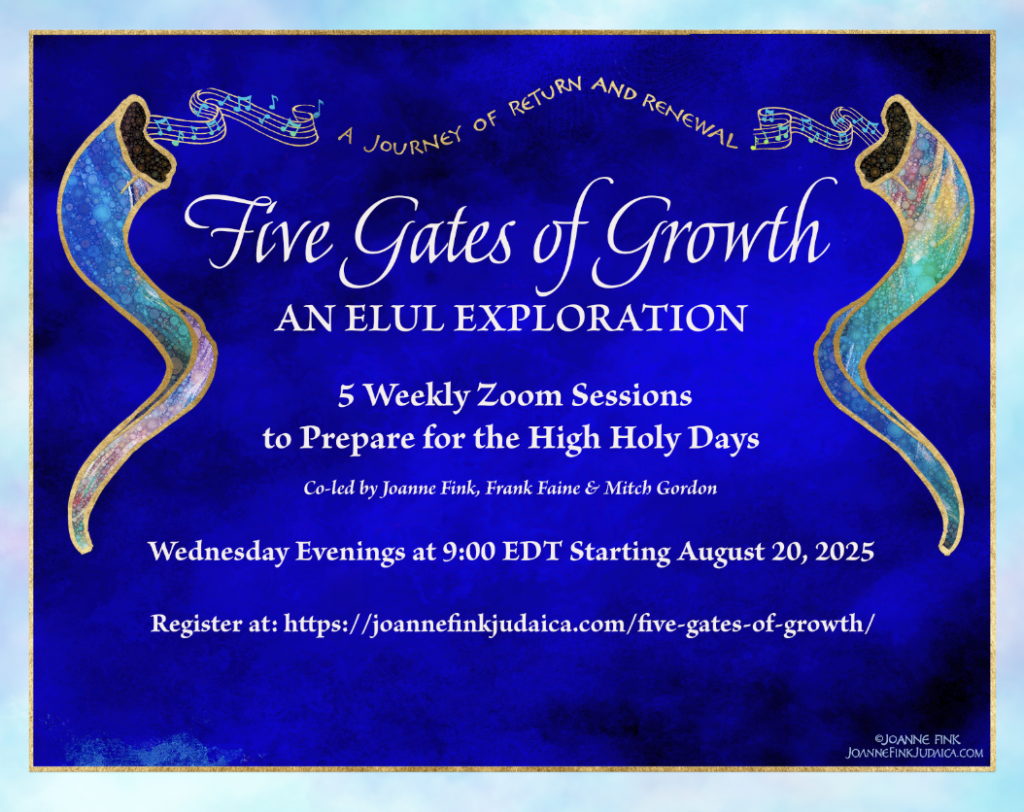Parashat Devarim (Deuteronomy 1:1–3:22)
The Book of Devarim opens with Moses standing before the people, preparing them to enter the Promised Land without him. His words—both rebuke and remembrance—echo across time, reminding us not only of where we’ve been, but of who we are, and what truly matters.
I have a sacred kavannah (intention) to create art and liturgy that uplift, inspire, and encourage. For my illustration of Parashat Devarim—“These are the words…” (Deuteronomy 1:1)—I added 29 words that resonate with me:
Be, Believe, Breathe, Celebrate, Connect, Create, Discover, Elevate, Give, Grow, Heal, Hope, Inspire, Light, Listen, Love, Pray, Reflect, Renew, Rest, Sanctify, Savor, Seek, Share, Shine, Sing, Soar, Transform, and Trust.

I titled the prayer for Parashat Devarim Alignment. It speaks to my personal desire—and, I believe, a shared human longing—for intentional living.
Alignment
A Prayer for Parasha 44, Devarim
May I greet each day with a song of gratitude
and strive for connection rather than perfection.
May I practice positivity and allow my soul
to remain open to possibility.
May I find a quiet moment each day
to pause, breathe, receive,
and to celebrate the wonder of being alive.
May I listen without judging
and give without expecting.
May I embrace the opportunity
to climb another rung on my life’s ladder
without worrying that I might fall.
May I be present to the love and the pain,
the hope and the joy that are part of my journey.
May I remember to choose my words with care
and may they be a source
of strength, comfort and inspiration.
May my thoughts and actions
be a reflection of my best self,
and may all I say, and all I do,
always come from a place of deep love.

This week’s Torah portion arrives just before Tisha B’Av, the saddest day on the Jewish calendar. On this day of collective mourning, we remember the destruction of the Temples in Jerusalem and countless other tragedies throughout Jewish history. It is a day of lamentation and loss—but also one of spiritual potential. For even in devastation, seeds of return are sown.
Devarim and Tisha B’Av share a theme: we are being invited to listen—
To our past.
To our pain.
To our potential.
To each other.
And, most importantly, to the still small voice within that calls us back into alignment with our deepest values.

Preparing Our Hearts for Elul
As Tisha B’Av marks the low point of our calendar year, the healing journey toward Elul and t’shuvah—return—begins. I’m honored to be co-leading a five-week Zoom Elul Explorations series, Five Gates of Growth, with my friends Mitch Gordon and Franklin Faine. Together, we’ll explore the inner work of t’shuvah and the ways in which we can realign our lives with intention and love.

Whether you are just beginning to explore this spiritual practice or have been engaging in annual Elul reflection for decades, I hope you’ll join us for this meaningful journey.
Click here to learn more and register for the Elul Exploration series.
Guided Journaling Questions
As we step into the Book of Deuteronomy and prepare our hearts for the journey ahead, I invite you to reflect on the following:
- In what areas of your life are you striving for perfection, rather than connection?
- What helps you pause, breathe, and remember the wonder of being alive?
- How do you remain open to possibility, especially during times of pain or uncertainty?
- What words have brought you strength, comfort, or inspiration recently—and what words might you offer to others?
- What is your intention in this moment, and are you living in alignment with it?
Closing Blessing
May the words of this week’s Torah portion
call you home to yourself.
May you listen with compassion—
to the still, small voice within,
to the cries of the world,
and to the wisdom of your heart.
May you speak with intention,
act with courage,
and open your heart to possibility.
May this be a season of healing,
of softening,
of realignment.
And may your journey forward
be rooted in hope
and guided by light.
